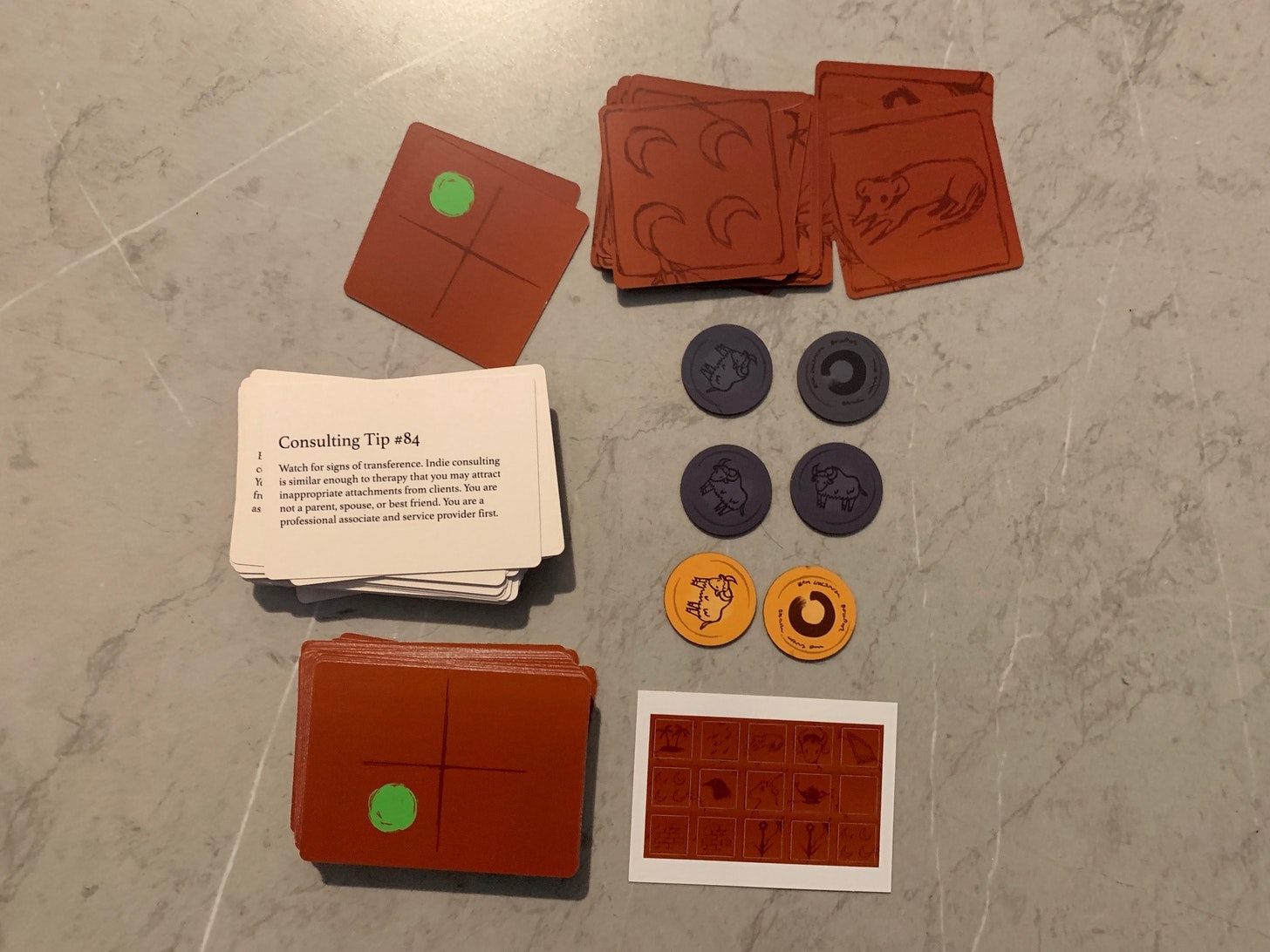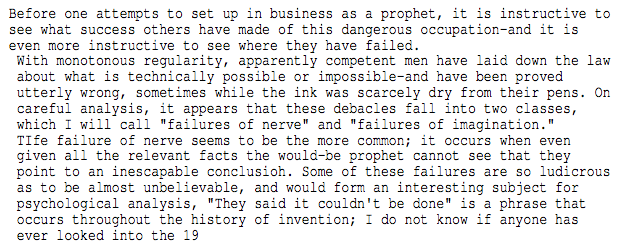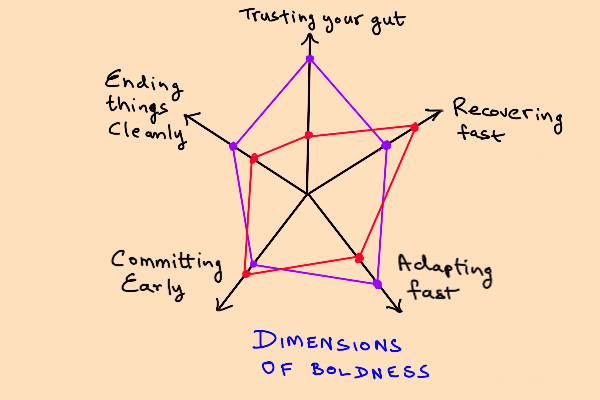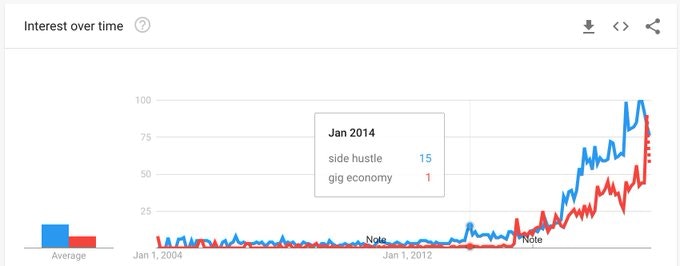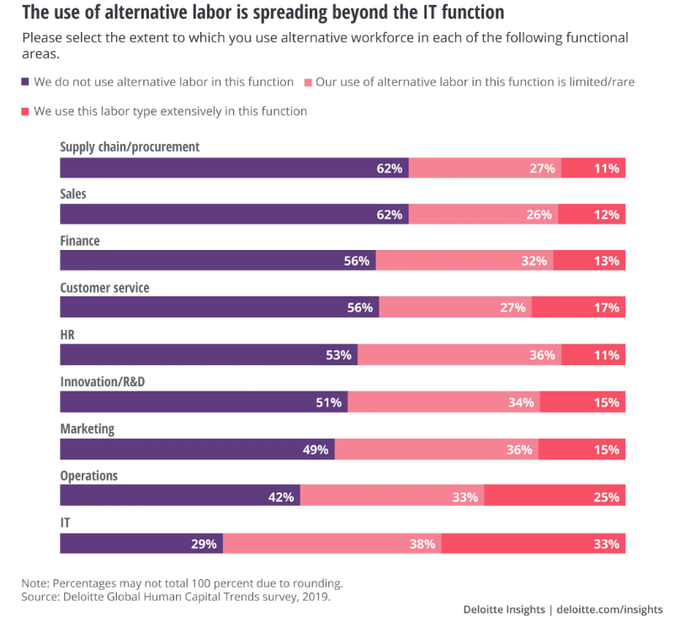Hmm. I received this mysterious package that I apparently secretly ordered from some sort of game-building site when I wasn’t looking. I think I’m up to something, but the part of my brain that appears to be doing whatever the hell this is appears to be NDA’ed off from the rest.
The haul appears to include a deck of 100 cards with consulting tips, some yak coins, a yak zodiac 24-tile set, and some yak zodiac stickers. Now why would I have had all this made? 🧐
Any ideas? I’l probably have to go on some sort of vision quest powered by yak butter tea to figure it out.
***
In other news, it’s Thanksgiving here in the United States, so Happy Thanksgiving, and a big thank you to all of you for supporting my first experiment in subscription email newslettering. We’re just over six months in, can you believe it?
A special shout-out to Tom Critchlow, Paul Millerd, Corissa Nunn, and Tom Kerwin, who all have been especially helpful in developing this project through its initial awkward months. I recommend following all of them (and of course @artofgig) on Twitter to level up your gigging game.
I’m still mulling various ways to make this a more social project, and connect what I’m doing here with what fellow explorers on the gig economy frontier are doing. Those of you who know me from my blog are probably aware that an interesting community grew up around that over the last decade (largely by accident, and despite my reluctance to cultivate it). I’d like to develop a more deliberately conceived community element here, but in an imaginative new way. A do-over of traditional blog-style communities seems a bit boring. Been there, done that.
Plus, the gig economy is a bigger, broader phenomenon than the blogosphere; and a more all-subsuming way of life. So it needs a more daring conceptualization of a community/social aspect. Meetups and conferences might be good enough for blogs, but won’t cut it for meaningfully leveling up the gig economy.
***
This list now has 300 odd paying subscribers, generating annualized revenue of almost $16,000 (😱😨🤯), which I totally didn’t expect. Again, thank you. It’s now the equivalent of a medium-sized consulting gig, and is just past the threshold where I feel like I can afford to think somewhat expansively to come up with interesting and imaginative ways to develop it further.
More than the money itself, which is nice to have, this measure of validation feels like permission to think at a meta-level about consulting and the gig economy. We’re not just a bunch of delinquents living a life comprising one damn thing after another. There’s a bigger story developing here, and we’re all part of it.
When you’re in the trenches pursuing leads, chasing down invoices, and riding the cash-flow roller coaster, it’s hard to step back and take the pressure off of yourself without feeling guilty about it. It always feels like available time could be spent more productively on concrete activities related to actual or potential gigs, or things like lead-gen.
Even as I write this, I feel a bit guilty about doing this rather than finishing up some notes I owe clients.
For an essentially shadowy sector of the economy, it feels self-indulgent to spend time thinking about general principles, doctrinal aspects, and philosophy. And dare I say it, exploring the seams of fun and games that are naturally present in the lifestyle, just as office parties and happy hours are a natural part of the paycheck lifestyle.
Writing this newsletter, for the first time in 8 years, I feel like I’m above the weeds, able to look at what we all do from enough of an altitude to provide meaningful perspective.
***
I plan to invest some of this incoming $$ into developing something more substantial under this newsletter, to help the gig economy develop and mature. The game-like assets in the picture are my own first idea in this direction. I’m sure many of you will have more ideas for me.
I’m not exactly sure where I’m going with the game assets. Mainly I wanted them for myself, to play with. So I got myself this prototype set to help me think about what to do with them.
My initial thought when I started this list was to eventually compile the content into books (which I might still do for the nonfiction essay-like) parts, but I figured I ought to experiment with tabletop gaming as a new publishing medium for exploring, teaching, sharing, and learning consulting and gig economy concepts.
For those who came in late, the Yak Zodiac is described here, the consulting tips deck is from my tip tweets, compiled in this series. The yak coins feature prominently in the consulting fiction I was sharing over the summer, and made their first appearance in the pilot issue of this newsletter. We’ll pick up the fiction and world-building again in a bit (as you’ve noticed, I like to keep some seasonal variety going here).
I’ll have these things available for purchase in a week or two, and going into the new year, we can all play with them and swap notes and ideas.
***
Speaking of games, holidays, and community, the general drift here for me is towards thinking of consulting and gig work as a full-fledged folkway, which historian David Hackett Fischer defined as:
…the normative structure of values, customs and meanings that exist in any culture. This complex is not many things but one thing, with many interlocking parts…Folkways do not rise from the unconscious in even a symbolic sense — though most people do many social things without reflecting very much about them. In the modern world a folkway is apt to be a cultural artifact — the conscious instrument of human will and purpose. Often (and increasingly today) it is also the deliberate contrivance of a cultural elite.
Gigwork is evolving from a narrow status as an alternative mode of work, into a full-blown folkway that fits Fischer’s definition.
Fischer developed his concept of a folkway in his classic Albion’s Seed, to talk about the early streams of immigration from Britain that made America what it is today. I have found it a useful concept for thinking about more migrations in general, including conceptual ones across non-physical borders. For example, I’ve explored the idea of folkways of globalization, to think about the nature of our emerging cosmopolitan, globalized life (which is still evolving steadily, despite some reactionary backsliding). In fact, I’d argue that the gig economy is one of the major folkways of globalization.
What we are doing here with this list, and what you are all doing in your own corners of the gig economy, constitutes one stream of migration from an Old World — the industrial paycheck economy conforming to the contours of nation-state geography — to a New World, based on gig work as a central economic mode, and conforming to the contours of global digital infrastructure.
But to make the migration successful (which means nudging it to evolve into a full folkway by Fischer’s definition, one that plays a significant role in shaping the future of the economy at large), significant injections of imagination and creative construction are required.
Though they are primarily emergent phenomena, folkways don’t make themselves. Per Fischer, they are the “deliberate contrivance of a cultural elite.” And in the very young modern gig economy, merely surviving for a few years without descending into penury makes you part of the “elite”. Which means you bear a share of the responsibility for this “deliberate contrivance.”
Fischer lists the following components of a folkway, of which only one is about work per se: speech ways, building ways, family ways, gender ways, sex ways, child-rearing ways, naming ways, age ways, death ways, religious ways, magic ways, learning ways, food ways, dress ways, sport ways, work ways, time ways, wealth ways, rank ways, social ways, order ways, power ways and freedom ways.
Fischer’s inventory is effectively a to-do list of social, cultural, and economic construction work that all of us in the gig economy participate in. Some of us do it consciously, others do it unconsciously, via casual advice they hand out, joking, griping and moaning on twitter, and tips and tricks they borrow from peers.
It is tempting to think of this to-do list as an institution-building imperative, but that’s too narrow. Though a folkway is a set of institutions in the broadest sense, when most people talk of institutions for the gig economy, they mean things like unions, coworking spaces, and health insurance.
That’s not only too limited, it’s a case of thinking ineffectively about the new through the lens of the old.
And in general, that has been a disaster, as scams like WeWork, and ill-conceived (though perhaps well-intentioned) legislative efforts like California’s AB 5 show. Things aren’t going to improve unless we in the gig economy take a much broader view of our responsibility for inventing our thread of the future for ourselves. If all we do is look back with wishful nostalgia at creaky, century-old constructs, all we’ll get is misguided attempts to reproduce old models, with cosmetic tweaks, that undermine the gig economy rather than strengthen it. Often instigated by people who are either not part of it, or don’t want to be. Far too much of the conversation around the gig economy is driven by people who seem to be wishing it would just go away.
The idea of a folkway is an invitation to think more expansively and imaginatively, and go beyond formal cargo-cult institutions that mimic industrial paycheck economy institutions. This means thinking in more fluid ways about a much broader class of concerns. Everything ranging from handshakes and greetings — which are institutions by certain definitions — to games, mythologies, histories, and epistemologies.
Otherwise we’ll be eternally caught in the purgatory between predatory politicians, wannabe union organizers, and apathetic paycheck-employee-centric HR departments.
We’ve barely scratched the surface here. While swapping tips and case studies, and how-to playbooks for landing clients is valuable, it is not enough.
In 2019, nearly twenty years into the modern gig economy, constructing our identities primarily in terms of how we relate to the paycheck folkway is no longer good enough. After all, there is a good chance the gig economy will outgrow the paycheck economy, relegating the latter to a minority sector of the economy overall. Imagining our future in relation to the future of paycheck work would be like early industrial age workers imagining their future in terms of the future of farming. Much of the supposed “future of work” thinking I see around the gig economy strikes me as the equivalent of early factory workers worrying about where to park their cows.
So the gig economy needs to outgrow its origin story in the paycheck world. For the gig economy to grow from limited sideshow to full-blown folkway, we need to talk about a lot more, and develop much deeper internal realities and subjectivities.
This process of reimagining and refactoring our world from an internal perspective is already underway. For example, people have lately been talking about the passion economy as the evolutionary descendant of the gig economy. Nice development of an rudimentary inner life, but evolution can’t stop at incorporating a notion of “passion”. That’s merely one more dimension. There’s a couple dozen more to go before we can call ourselves a folkway.
There’s a lot more evolving and designing and contriving to be done here, and by the time we’re done, you and I will be old, and looking forward to whatever the equivalent of “retirement” is for the gig economy folkway (gigway?).
It’s a long journey ahead, and we’re just getting started.
